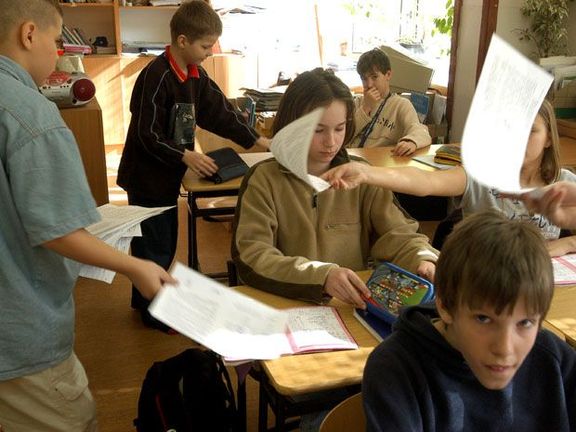Prague - Czech Prime Minister Mirek Topolánek has presented a plan to reform the university system. In his so-called White Book, Topolánek called the reform one of the reasons why the government cannot resign.
The document Aktuálně.cz has been given access to shows that Topolánek's main goal is to enable everybody who is interested to study at a higher education institution.
"Neither elitism nor egalitarianism should reign at universities. University education will be an open competition everybody is allowed to engage in," PM summarized his vision.
Lower socio-economic classes disadvantaged
Education Minister Ondřej Liška added that there is no time to waste. "We are wasting human resources, when local children from blue-collar families have the lowest chances to receive university education in all of the EU," explained Liška, referring to data provided by Eurostat.
Eurostat informs that only 9 percent of working-class children study at a university - this is six times lower than the number of children of university educated parents.
On average in the EU, the number is only two times lower.
However, the initiative is not welcomed very warmly by the Czech Rectors Conference that has asked the government to completely redo the White Book.
The rectors are most worried about the proposed changes in university administration and research financing system.
Rector as a manager
For example, the White Book proposes that rectors will not be elected by academic senates anymore, but by an executive council with members nominated by the Education Minister based on proposals from politicians, business associations or academics.
"So far, it is only the Czech Television Council that functions on a similar basis and nobody likes that," commented Senator Jiří Zlatuška who was a rector of Masaryk University in Brno for six years.
According to the reform's proponents, such a system would provide universities with greater autonomy and enable rectors to use a managerial approach to head universities with all authorities and responsibilities clearly defined. Also, universities will be able to respond to the demands of the public and the economic sphere more adequately.
Concerns about research funding
At the same time, Zlatuška and others have expressed concern about how university research will be financed.
"This funding should be separated from the budget for education. This could lead most universities not to conduct research at all," warned Zlatuška.
On the other hand, experts would allegedly be motivated to be active in research financed by grants instead of teaching. Zlatuška believes that when the best experts won't be teaching, universities will be producing less qualified graduates.
However, Topolánek is persuaded that the system needs to be changed, claiming that research grants cannot be distributed equally to all universities that ask for it. "Way more money should be granted to departments that carry on excellent research," said PM.
Fees mean freedom (to study)
Topolánek added that they are not yet sure about how to motivate research professors to teach.
At the same time, rectors are in accord with a plan to finance teaching at universities that, counting on fees while securing adequate social support to those in need.
Students will not have to pay off the fees until they graduate and begin to receive salaries. In addition, they will be offered a number of grants, loan possibilities and bonifications.
"The aim is not to introduce fees, but to create an open university system," assured PM.






